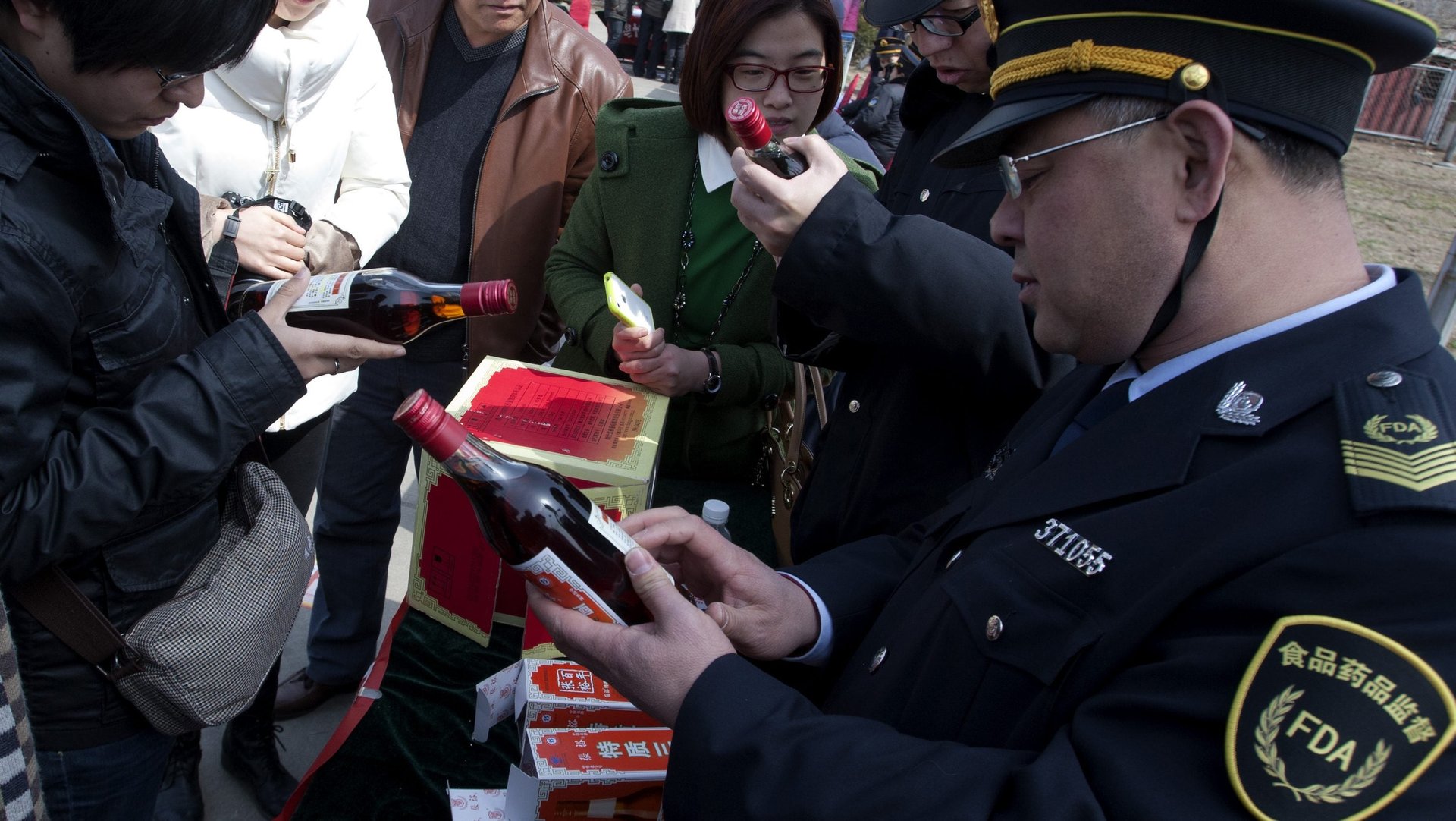China’s FDA is using instant messaging and web videos in its fight to dispel internet food rumors
China’s top food safety regulatory body says it is working hard to battle both fake food, and also fake food news.


China’s top food safety regulatory body says it is working hard to battle both fake food, and also fake food news.
Established in 2013, China’s Food and Drug Administration (CFDA) is the main body that’s supposed to protect the food supply in a country where fears around food are deep-seated due to the constant exposé of fake food products, some of which turn out to be fake too.
In a two-page email response on Sunday (April 1), the department said that online rumors are definitely affecting public opinion about the food security situation, adding that ”the large population and limited land resources, as well as the special historical development phase of China, have “created a huge gap between food security regulation work and people’s expectations.”
Quartz reported on March 26 on China’s growing problem of fake food news stories, including videos that went viral in February on “plastic seaweed,“ and why it’s so hard to quell those rumors.
CFDA says it has established social media platforms to provide the public with weekly updates on food sample results, and has dedicated pages to sampling, recalls, risk warnings, unannounced inspection, and illegal advertisements (links in Chinese).
It also opened a public account on WeChat, the social-media service that has 700 million monthly active users, to address rumors and promote science education on food and health. In November, the bureau hosted a show about the difference between prescription and non-prescription drugs (links in Chinese), which was viewed over 3,000 times.
The bureau also said it has been increasing sampling size. Last year, the bureau has sampled 257,000 items—a 49% increase compared to 2015—and says only 3.2% failed to meet standards. It also found 170,000 illegal goods across the country, a list of which was published on CFDA’s website (link in Chinese).
Still, despite these efforts, the bureau acknowledged it might find it hard to change the situation in the short-term. “A relatively weak regulation force at the grass-roots level, the lack of technicians and outdated equipment for law-enforcement” are holding it back, the CFDA said in the statement.